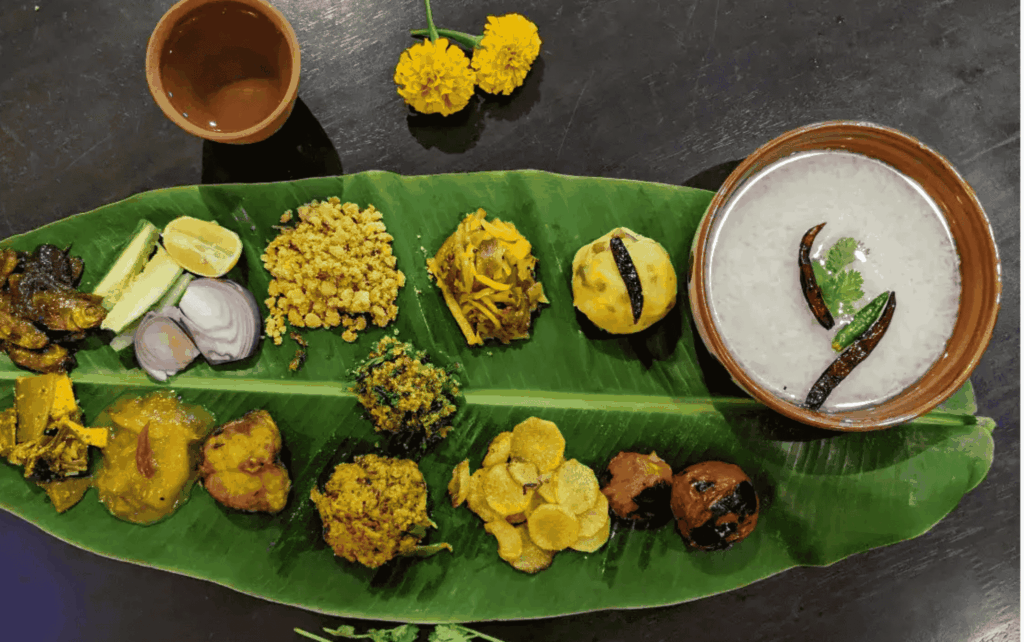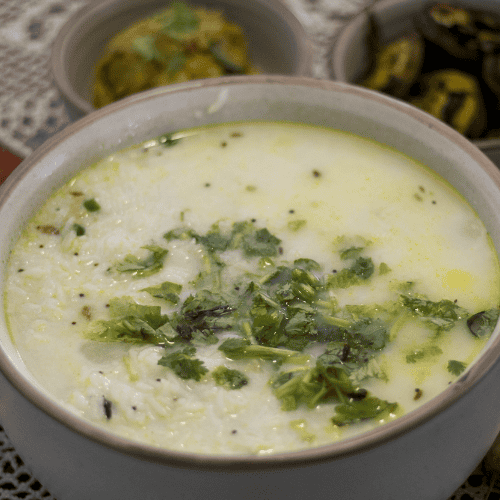Tasting India Differently: The Simple Comfort of Pakhala
When traveling in India, responsible tourism is not about spending more – it’s about learning and sharing.
In Odisha, one of the simplest yet most meaningful ways to experience local life is through pakhala, a humble bowl of fermented rice that has been nourishing people for centuries.
Made from leftover rice soaked in water and left to ferment overnight in an earthen pot, pakhala is served with yogurt, mustard seeds, curry leaves, or simple sides like mashed potatoes, greens, and fried fish. Light, tangy, and refreshing, it has long helped Odias survive the scorching summers, with its probiotic-rich water, or torani, hydrating the body, aiding digestion, and strengthening immunity.
But pakhala is more than food; it is a cultural thread running through Odisha’s history and daily life. First offered to Lord Jagannath in the 12th century, it remains present at weddings, new beginnings, and seasonal celebrations like Pakhala Dibasa each March. For many, it is also a taste of home, a nostalgic reminder of childhood meals and family traditions. Despite its simplicity, a bowl of pakhala is deeply sustainable, born from a no-waste culture, accessible to everyone, and costing less than a dollar.
For travelers, tasting pakhala is not about fine dining but about connecting with the spirit of a place. Sitting with locals over this modest dish reveals how food can cool the body, carry ancestral wisdom, and bind communities together. In its simplicity lies a powerful reminder: the most meaningful journeys are not about luxury, but about discovering how ordinary traditions can tell extraordinary stories.









